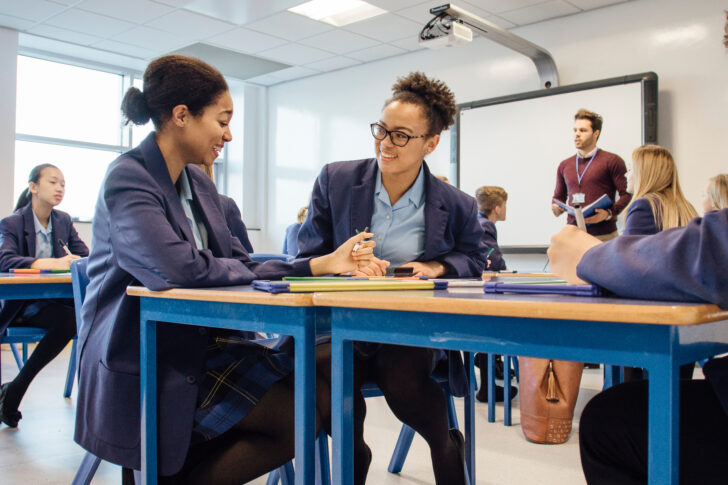Buying a school, whether a small primary school, a specialist academy or an independent secondary school, is a unique investment with both financial and societal impacts.
The education sector is highly regulated, with its own complexities and considerations, but can be a rewarding acquisition for buyers. Here’s what to keep in mind when buying a school:
Understanding the Market
The UK education sector is diverse and competitive. Schools range from private independent institutions to international schools, as well as specialised institutions catering to specific educational needs. Before purchasing, it’s essential to thoroughly research the type of school and the demand for such institutions in the target area. For instance, independent schools may cater to high-income families, while international schools may target expatriates or families who value globally oriented curriculums.
Market research should include data on the demand for school places, population growth in the area and local competition. Look at the wider economic trends and the specific sector dynamics, such as growth in the demand for international or alternative education options, to assess if your prospective school has a viable long-term future.
Evaluating Financial Health
Evaluating the financial health of the school is a crucial step in the purchasing process. Review detailed financial records, including income statements, balance sheets and cash flow reports. Pay attention to income sources such as tuition fees, grants, donations and any government funding, as well as to outgoings like salaries, maintenance and operational expenses.
Profit margins for schools vary widely, and a detailed financial assessment will reveal whether the school is viable in its current state or if substantial restructuring is required. It is also worth looking into unpaid tuition fees or standing loans, which may impact cash flow in the short term.
Considering the Location and Facilities
Location can significantly affect a school’s success. A good school in an accessible, family-friendly area with a growing population can thrive. Additionally, consider facilities that match or exceed competitor schools, from the quality of classrooms and sports facilities to computer labs, libraries and extracurricular spaces.
Conduct a thorough inspection of the property to assess any structural or maintenance issues.
Legal and Compliance Requirements
Schools in the UK must meet stringent legal requirements and comply with regulations set out by Ofsted, the Department for Education and various other educational and health authorities. Buyers should ensure that the school is fully compliant with all relevant laws, from safeguarding regulations to health and safety standards. For private and independent schools, requirements around curriculum standards, safeguarding and staff qualifications are particularly high.
As with any business purchase, legal support is essential. Your solicitor will review the school’s compliance status, ensuring all licenses, certificates and insurance policies are up to date. Non-compliance with educational regulations can lead to serious consequences.
Assessing Reputation and Brand Value
The reputation of a school is one of its most valuable assets. Parents, students and the wider community are heavily influenced by how a school is perceived. Check online reviews, speak to parents or alumni, and examine inspection reports to gain insights into the school’s reputation. A poor Ofsted rating or negative local opinion may require investment in branding and marketing to improve public perception.
If you are purchasing an established school with a strong brand and excellent reputation, you may find it easier to retain existing students and attract new enrolments. Conversely, buying a school with a less favourable image can present an opportunity to rebrand an restructure, but it may require significant time and financial investment.
Examining Staffing and Operational Needs
A school’s staff – teachers, administrators and support staff – are central to its day-to-day functioning and overall success. When buying a school, assess the qualifications, experience and retention rates of the existing staff. Stable, experienced staff are a valuable asset.
Understanding Tuition Fees and Financial Aid Options
For independent and private schools, setting the right tuition fees is crucial for attracting students and ensuring profitability. Review current tuition fees, compare them to competitor schools and evaluate the financial aid options offered by the school. Offering scholarships or fee-reduction programmes can improve accessibility and boost enrolment but may impact income. Consider whether adjustments to the fee structure or additional revenue streams could boost income, such as renting facilities for external events or offering additional programmes.
Assessing Potential for Growth
Finally, think about the potential for growth and innovation. The education sector is evolving rapidly, with digital learning, personalised education plans and innovative teaching methods gaining popularity. Evaluate whether the school has the capacity and flexibility to adopt new approaches and expand its offerings. This could include developing new extracurricular programmes, introducing advanced technology or considering international accreditation.
Buying a school is a significant commitment, with rewards that extend beyond profitability to contribute to society. It requires careful consideration of financial, operational and regulatory factors, as well as a deep understanding of the school’s community and market position. By conducting thorough due diligence, evaluating growth potential and planning for any necessary changes, prospective buyers can ensure that they are making a wise investment that offers long-term benefits to students and stakeholders alike.
If you are ready to take the next step on your journey to buying a school, get in touch today and check out our portfolio of schools for sale.
